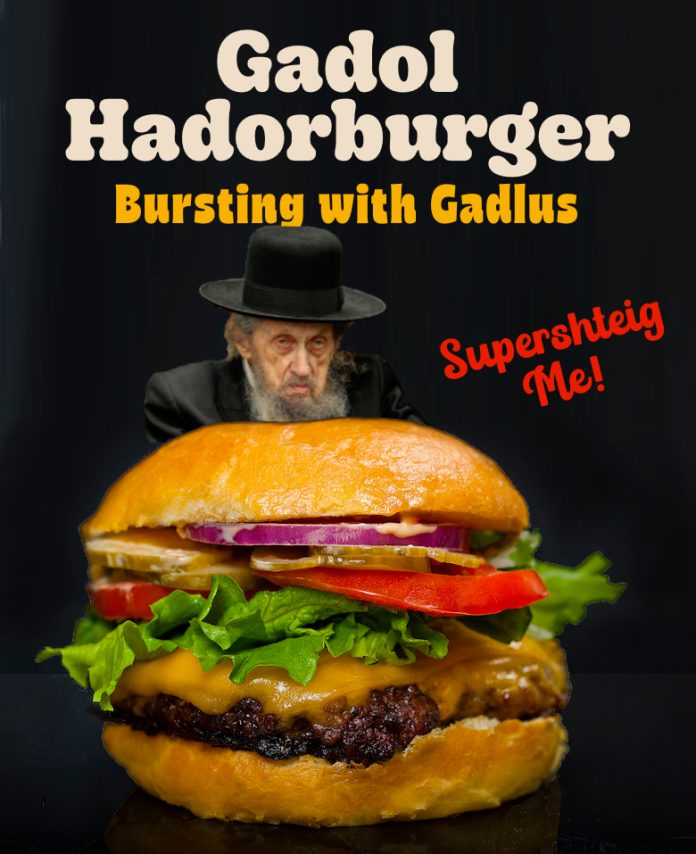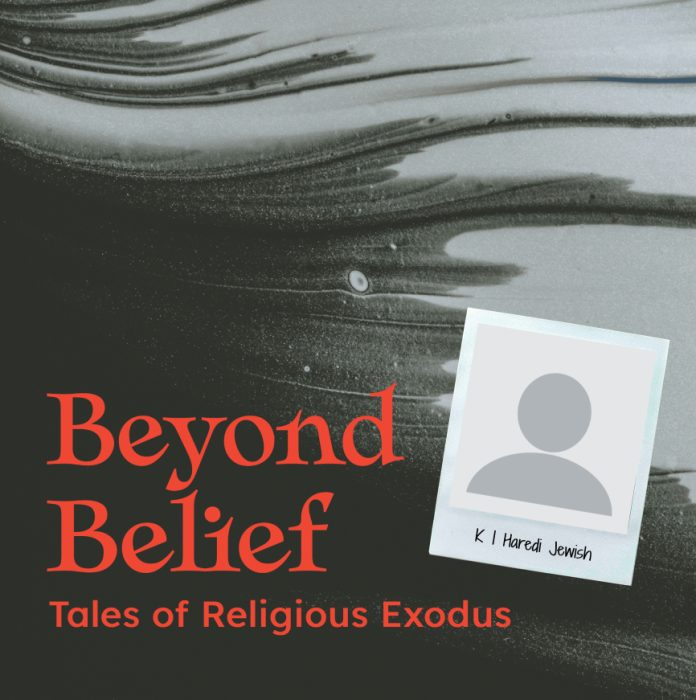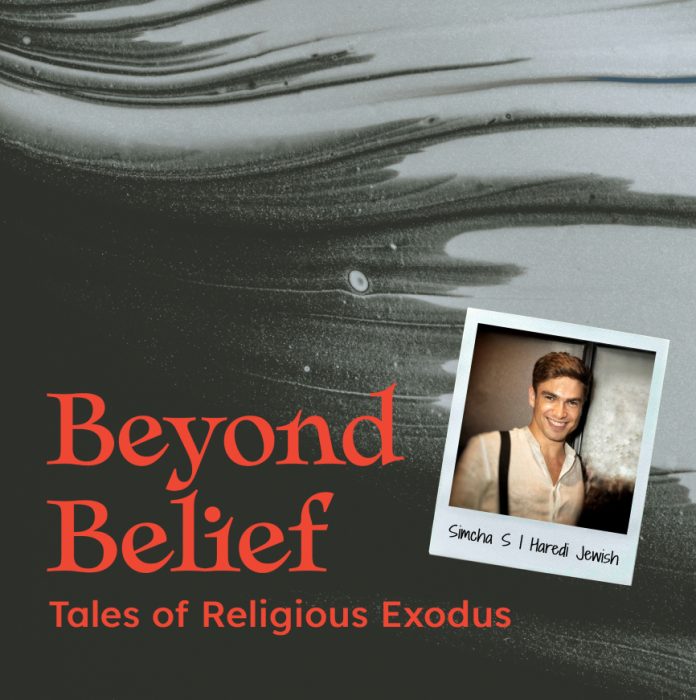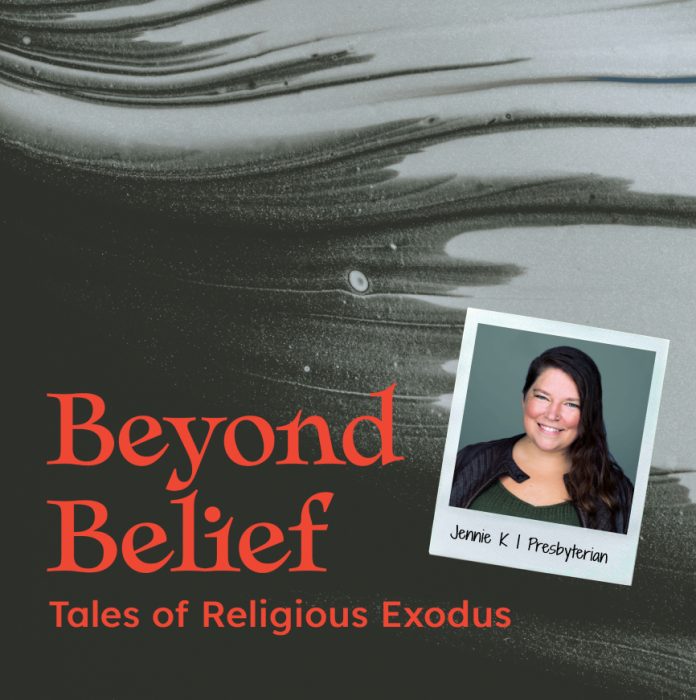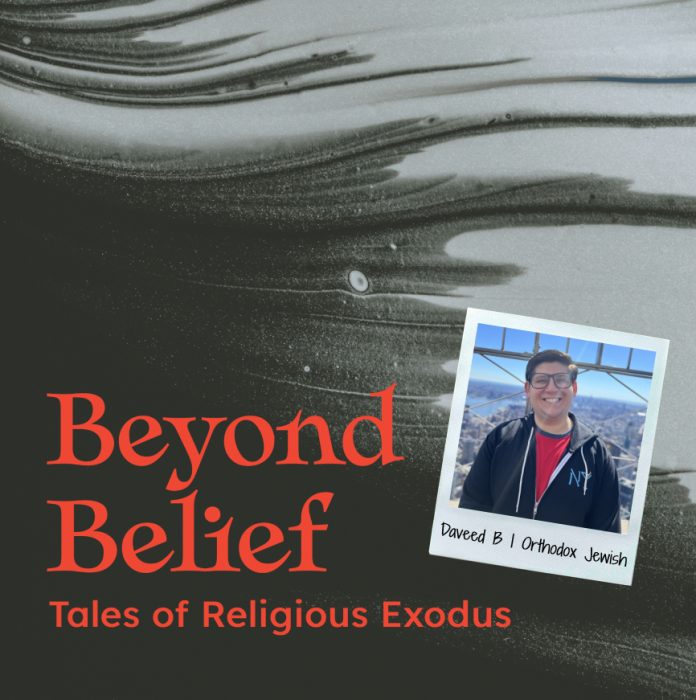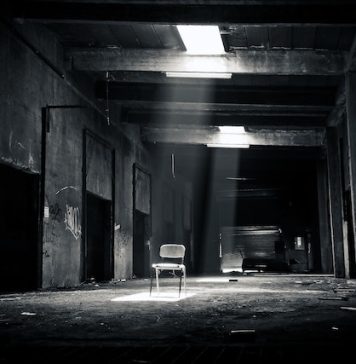Endorsed by the leading minds of the generation, the Gadol Hadorburger is bursting with gadlus in every bite. Prepare to be supershteiged by the glistening holiness that only the most oldest of Rabbis can imbue.
In This Week’s Parsha
You want inspiration from this week’s Parsha? I’ll give you inspiration from this week’s parsha.
In this weeks Torah portion, we learn about Moses, humblest of all men, who conveniently had anyone who oposed him killed. But it wasn’t him, it was God.
In this week’s Torah portion we learn about stoning gays.
About how to treat your slave right.
About how much less a woman is worth than a man, in monetary value.
We learn about God’s compassion, and his caring for the Jews like they are his own children, and all those times he smote tens of thousands of them in plagues because they crossed Him, those ungrateful bastards.
In this week’s Parsha we learn about Genocide, and when it’s allowed.
We learn about animal sacrifice, and the minutia that necessitate it.
We learn just how unclean a woman is when she is having her period. And how unclean a man is when he ejaculates.
In this week’s Torah portion we learn how many Jews there were at a specific point in time. We learned who begat whom. We learn when the Jews went where during the 40 years in the desert.
Inspiring.
In this week’s Torah portion, we learn about zealots taking laws into their own hands.
About how to deal with idolatrous wives.
About how big a fine you should pay for rape.
About polygamy, from a man’s perceptive.
You’ll learn about leprosy, Good and Evil, and how Jews are the chosen people, destined to becomes greater in number than the sand on the shore and the stars in the sky.
This hasn’t happened yet.
You can be inspired by blessings, shaken by curses, and moved by the six different women who are mentioned in passing.
It is a sweeping book, dictated by God Himself into Moses’ dutiful penmanship and painstakingly transcribed from one generation to the next, even though the font has completely changed over time.
In this week’s Parsha, you’ll learn how to live an ethical and moral life.
By doing the opposite of what the book says.
Perpetuating Trauma
I was 11 or 12 years old when my school took us to the neighborhood holocaust museum (what, yours doesn’t have one?)
The rabbis warned us that the museum curators might not have the same sensibilities that we enlightened religious people did, and therefore we might encounter some pictures of naked women in concentration camps.
And if we do, we should avert our gaze.
The exposure to gratuitous violence and death, on the other hand, was not the least bit of a concern.
Attending the Yad Vashem holocaust museum is an annual activity for many Orthodox Jews, the perfect way to spend Tisha B’av instead of sitting home and trying to be sad by yourself.
Stimulated by negativity. Titillated by trauma.
I indulged in this ritual several times during my teens, supplemented by graphic holocaust documentaries screened locally on the years I couldn’t make it.
My father was obsessed with antisemitism. I’m not sure if this was his own trauma response to visiting the camps as a teen – the holocaust had ended only 15 years before he was born. Or if it was instilled in him by Noah Weinberg, who couldn’t shut up about Hitler and how inspiringly evil he was.
My father’s bedroom office was lined with shelves of books about the holocaust. They were high up and out of reach, so of course I gained access to them. I couldn’t look away.
My father soon developed a new obsession – the threat of radical Islam. He founded a non-profit and churned out documentary after documentary about local and regional threats – Palestinian, Iranian, ISIS, college campuses.
The goal was to spread “awareness”. The solutions were for other people to find.
He exported fear, and he found a willing voice in the American right and in Jews, who can’t get enough of regurgitating tales of antisemitism on the high seas.
To watch these films was to be exposed to graphic violence set to haunting music, footage from bus bombings, terror attacks, and other acts of brutality. Sometimes the footage was blurred and we were just informed about what we were seeing.
I watched many of these films as a teen, at a time when my parents wanted me to look away when there was a kissing scene in a movie.
I was banned from playing computer games that involved shooting, but welcomed to watch news footage of shooting attacks.
It is fitting , that in this period of my life, I was addicted, or at least dependent, on pornography.
Porn and violence both appeal to the primal part of our brain, the one that transcend logic.
Prostitution is the oldest profession.
Antisemitism is the oldest obsession. For Jews and non-Jews alike.
My father meanwhile, was producing violence porn.
My traumatic exposure to these visuals was disseminated under the guise of “prevention”, “awareness”, and “remembrance”.
Would the average terrorist not welcome the footage of their acts being broadcasted to more people? Would they not be appreciative of the fear of their actions being spread, free of charge, by their victims?
Yuval Noach Harari speaks about the negative impact that magnifying terrorism has – taking acts that are almost trivial in the scheme of deaths and violence that are already occurring within a given country and sensationalizing them, creating an outsized impact.
Terrorists and Nazis commit the acts. They are the perpetrators.
And then come the people who, horrified, share their message as broadly as they can. They are the perpetuators.
My life would have been infinitely better off if I had a lot less exposure to the shit my people went through.
The average Jew experiences infinitely more freedom and tolerance than any of their ancestors did for hundreds of years.
And instead of celebrating this, and moving on, we drag ourselves back into the mud.
Actively identifying as victims beyond the cross-generational trauma that is already flowing through our DNA.
Leave me out of it.
I resent the perpetrators.
And I resent the perpetuators.
Modes of transportation
Some run towards the fire,
Some run from it
Some ride towards the end.
Head held high, staunchly gripping the handlebars.
Others try to speed away from it.
Some honk.
Some would never honk.
Some prefer to experience it from the ass the of the car in front of them 160mph
Some are white knuckling it on the far-right lane.
In 1984, Harley Davidson released their Evo blockhead air0cooled engine featuring a unique 45-degreen V-twin layout that became a signature feature of their band.
Who’s to say there is a right way?
Places to go.
People to see.
The top 50 destinations you should see before you die.
Some fall asleep at the wheel.
Some fall into a trance, forgetting where they’ve been the last 20 minutes.
My mother says her last 20 years were like that.
I wonder what she means by that.
I wonder if she’s woken up yet.
The Mazda MX-5 features a Skyactive-G 16 4-cylindar engine with 181 horsepower at 7,000 rotations per minute that can propel its owner right out of his miserable existence for about 30 seconds.
Show, don’t tell.
Don’t talk about how obvious this metaphor is, death yawning at the end.
It’s a conveyor belt we’re on.
Emerging from the yawning black chasm of our parent’s disapproval.
Churning towards the inevitability we’re headed towards regardless of whether we choose to lie on the grass, inert, waiting for a parent, a paramedic, or our own children to come and save us.
The grand highway from cradle to the grave.
The Bagger 288 is manned by five people and can dig up 220,000 tons of coal per day.
Some prefer green. Some prefer red.
That uncanny feeling when only the others have a stoplight and you’re wondering if you’ve missed a cue.
Permission where no one else has.
Holding still while everyone else can proceed.
The Cannondale Carbon 3 Synapse bicycle is a marvel of precision engineering.
Some should not be drivers at all.
But we’re all thrown into a car at the moment of birth and at some point, we slowly inch out of the passenger seat into the driver’s seat while the car is still in motion.
You need a license for a great many things.
But you don’t need one to become a parent.
Sometimes your only skill as a parent is your ability to ejaculate into a woman’s vagina.
Escaping Orthodoxy: Katrin’s Journey from Ultra-Orthodox Judaism to Secular Life
In this revealing episode, ‘Katrin’ shares her experiences growing up in an ultra-Orthodox Jewish community in England. She discusses the unique challenges of her upbringing in a restrictive religious environment characterized by lower-income neighborhood struggles. Katrin opens up about her nonconformity, neurodivergence, and queerness, which made her feel like an outcast from a very young age.
Her narrative delves into her eventual departure from the community, including her time in Israel, and the subsequent challenges and victories in building a life outside the religious framework. The discussion also touches upon broader themes of religious disillusionment, mental health, and the essential quest for a supportive, understanding community.
00:00 Introduction and Guest Background
00:36 Growing Up in a Religious Community
03:31 Struggles with Identity and Religion
06:30 Neurodivergence and Religious Constructs
09:29 Queer Experiences in a Religious Setting
14:10 Leaving Religion and Its Consequences
18:34 Journey Out of Religion
32:41 Transitioning to Social Care
33:33 Navigating Education and Funding
34:15 Family Support and University Decision
34:42 Reflecting on Career Choices
34:53 Self-Education Through Psychology
36:01 Balancing Practical Skills and Professional Growth
36:50 Personal Identity and Family Dynamics
37:45 Challenges of Leaving Religion
38:19 Unlearning Prejudices and Embracing Diversity
41:20 Navigating Safety and Privilege
44:35 Building Community and Finding Meaning
55:03 Advice for Those Leaving Religion
59:04 Interviewer’s Reflections and Common Themes
Episode Summary
In this powerful and introspective episode, we delve into the captivating story of Katrin, a pseudonym chosen to guard anonymity, as she shares her journey out of an ultra-Orthodox Jewish community. In this episode they explore themes of identity, community, mental health, and survival after leaving a strict religious environment.
Early Life and The Struggle for Belonging
Katrin’s story begins in the densely packed corridors of an ultra-Orthodox Jewish community. Despite growing up amidst religious fervor, she always felt like an outsider, a sentiment many can resonate with. “I was being pointed out as different before I even realized I was different,” Katrin recounts. Raised in a highly religious neighborhood, she was one of many children in an isolated and insular community, surrounded by strict religious norms and values.
Katrin’s experience highlights the struggles of growing up queer in a deeply conservative society. “Being queer, in terms of life, sexuality, and being what is not acceptable or normal,” Katrin explains, compounded her sense of not fitting in. This misalignment with both the religious teachings and the societal constructs around her shaped much of her early years and her eventual decision to leave the community.
The Religious Exodus and Mental Health
Katrin’s journey out was tumultuous and fraught with challenges. “I got kicked out of school,” she says, an event which paradoxically helped her to transition away from the religious constraints that bound her. Eventually, she found herself in Israel, a place she describes as having offered her a semblance of structure and stability amidst the chaos. “Having the option of a structure for a while, I think really worked for my brain,” she explains.
Mental health issues are a recurring theme in Katrin’s narrative. From dealing with neurodiverse traits to coping with depression and suicidal thoughts, her story underscores the critical intersection between mental well-being and the process of leaving a restrictive religious background. Therapeutic interventions played a pivotal role in her recovery and adjustment to a new life outside her former community.
Finding Community After Religion
Community is a central theme in Katrin’s story. The ultra-Orthodox community she left was tightly knit but also stifling. Upon leaving, finding or creating a new, supportive community became crucial. Katrin emphasizes the importance of seeking out like-minded individuals and building new connections.
“Finding something that connects you,” she advises, is essential. Whether through painting, walking groups, or other shared interests, creating a new community can be a lifeline. Katrin found solace in the queer community, which provided her with support and understanding that she desperately needed. “Be willing to be rejected,” she encourages, stressing the importance of persistence in forming new bonds.
Overcoming Prejudices and Unlearning
One of the most compelling aspects of Katrin’s journey is her conscious effort to unlearn prejudices and internalized beliefs from her former religious life. “I had to specifically train myself out of being, I don’t want to say racist, because I don’t think we ever were, but we didn’t know any Black people,” she admits, highlighting the inherent biases she worked to dismantle.
Her process of unlearning extended to overcoming antisemitism and negative beliefs about young mothers, among other things. This self-awareness and dedication to personal growth exemplify the hard work required to rebuild one’s identity after leaving a life steeped in rigid ideologies.
Finding Meaning and Purpose
Katrin’s reflections on finding meaning post-religion are profound. She believes in the interconnectedness of humanity and the significance of emitting positive energy. “We are born with a purpose,” she states, advocating for living a life that contributes positively to the world. This spiritual, rather than religious, outlook has guided her to focus on self-improvement and community support.
Concluding Thoughts: Advice for Others
For those considering or navigating a similar journey, Katrin offers steadfast advice. Seek out and build a community based on shared interests or aspects of your identity that resonate with you. Whether it’s joining clubs or groups or simply reaching out to others, the key is to persist despite possible rejections.
Ultimately, Katrin’s story is one of resilience, self-awareness, and the search for belonging. It sheds light on the multifaceted challenges faced by those leaving strict religious communities and offers a beacon of hope and guidance for others on a similar path.
Katrin’s journey out of an ultra-Orthodox Jewish community into a life of more freedom and acceptance is not only inspirational but also educational. Her emphasis on community, personal growth, and the importance of mental health can serve as a guide for many struggling with their own paths to authenticity and self-acceptance.
Accounting
He never learned much math.
Math was limited to two hours a week with a secular studies teacher who spent more time shouting at unruly classmates than teaching arithmetic.
It was a shame, because he would have been good at it.
He could have been an engineer, in an alternate universe. From the youngest age he’d loved construction. First playing with toy tools, then Knex and Lego, electric dinosaurs and space shuttles. After-school carpentry classes led to building his own loft bed. He could close the door to his room by pulling on a string.
Pull and push. It was basic physics.
He was the eldest of nine children. “But who’s counting?” his mother would laugh, apologizing to the shabbat guests who were incredulous at the site of a western woman subjecting herself to such numbers. “We have them one at a time,” she’d explain.
Nine cannot be divided evenly. When you do, you get a remainder. He learned this much later, once he’d left religion and started learning things.
He often felt like the remainder. So, apparently, did the rest of his siblings.
His room contained all the things that did not have a place. A fridge. Extra pots. A drum set. Him.
There wasn’t much need for math. Except for when calculating the sizes of the different ancient temples. They were measured in cubits. A cubit is six tfachim. A tefach is about the size of a grown man’s fist. It was all very scientific.
There wasn’t much need for math, but there were many things to count.
The seconds until next recess.
The minutes until school was over and he could go home.
How many times in a row Rabbi Shlomo Lipschitz could smack a child. He kept the tally in a little notebook. The record was 32.
How many times the class had read each chapter. The goal was 24.
He’d often lose count, even though he’d been appointed the coveted role of Repetition Counter. His mind would drift to better things.
Sunlight.
The geometric patterns in the white space between the letters.
How much dandruff he could accumulate in the cracks between the pages.
Counting the amount of times Rabbi Snertz adjusted his glasses in a single class (54). The traits with which one Acquired Torah (49, even though the Mishna said there were 48). The number of adult Jewish men over 20 when the Jews left Egypt (603,550) and the number after wandering the desert 40 years later (601,730), which was notable for both going down after two generations and for always conveniently ending in a multiple of 10.
Sometimes it got complicated. Counting the number of men in the room to make a minyan, while simultaneously making sure not to count people.
King David had counted his soldiers which caused God to start a plague that killed 70,000 people. To prevent another plague, you instead counted Kippas and Casios.
God, on the other hand, used math all the time. Every year, your good deeds and bad deeds were measured on a scale. If the good outweighed the bad, you’d earn yourself another year. If the bad outweighed the good, you’d be written in the book of death.
It’s not that God was vengeful, explained Rabbi Zeldman (He used to teach high school math, Rabbi Zeldman had, before moving on to teaching The Secrets of The Universe). These were the simple consequences of your own doing. A direct response to your own behaviors. Push and Pull. Basic physics.
This was why, in Elul, you needed to double down and load yourself up with good deeds. You didn’t have access to the tally.
Imagine you could check your spiritual bank account whenever you wanted. You’d find that your good deeds had been earning interest and you could afford to splurge on some sins. Or you’d find that your sins were hopelessly overdrawn and that there was no way you’d recoup before the year’s end. “Might as well go out with a bang,” you might say. And go bang a prostitute.
What I’m saying is: you not knowing math, is awfully convenient for God.
“Everything of importance requires precision,” he once heard Rebbetzin Heller say in a talk. He didn’t usually listen to women talk, because they were generally less wise. But Rebbetzin Heller was different. She was brilliant, his mother had informed him. She was a powerhouse.
Because precision is so important, we keep exactly 6 hours between milk and meat. Unless your tradition has it to only keep 3, or 1. Some people keep “into the 6th hour” which means 5 hours and one minute.
You usually only have to wait after eating meat. But if the milk was “strong”, like aged cheese, you had to wait after it too. How long was “aged”? 12 months.
Hell also lasted 12 months. Which, his rabbis pointed out, is still a very long time to be suffering in the most excruciating way possible.
He was encouraged to use his imagination.
Imagine yourself with a hot iron pressed to your face.
Imagine a catapult throwing you from one end of the world to the other.
Imagine eating burning coals.
Imagine boiling in a pot of your own spilled semen.
Imagine.
There were numbers everywhere.
The Six Constant Mitzvos, to be contemplated continuously.
6 million Jews killed in the holocaust.
21 killed and 76 wounded in the latest bus bombing.
Count the days until you die.
Imagine yourself with one foot in the grave.
That’s what Rabbi Nissim Karelitz used to do – he’d lie in a dug grave and contemplate his meager existence.
Every day was an opportunity, extolled Rabbi Noach Weinberg, pounding the podium and peering over the top of his glasses, smiling with benevolent fury.
Each Jewish soul saved.
Each righteous act tipping the scales.
Each word of Torah rebuilding another golden brick in the heavenly temple.
Genesis
In the beginning God created heaven and earth.
When you think heaven, you probably think stars and shit. But no, those were created on the fourth day.
We’re still on day one here.
Meanwhile, the earth was really dark, and God was blowing his Godly wind all over the water. It was chaos, all that wind. Total chaos.
And then God said, “let there be light”, and there was light. But not from the sun, that’s still happening on day four, as you might recall.
God liked where this was going and decided to separate the light and the dark. Until then they had been mixed.
And God called the light “morning” and the darkness “evening”, which is why in parts of Sweden they have one morning and one evening per year.
And thus concluded the first day.
Day two. God focused on firming up the firmament. He placed it between the upper waters and the lower waters, and so it was.
At this point you might be asking yourself what firmament is. Who knows. It sounds like one of those things your contractor tells you he was working on when you ask him for a progress report. Basically, he spent an entire day doing fuckall, as far as can we can observably tell. Slacking off on the second day of the job.
Day three, water works. God gathered all the waters into one place, so that the earth was exposed. His words, not mine. And then he gave things names like “land” and “sea”, but in Hebrew. Accept no substitute for the original Hebrew word.
Now that there was land, God created grass and fruit trees. As a reminder, there was still no sun for photosynthesis and no creatures for pollination, but whatever.
On the fourth day, God finally attended to the celestial bodies. After focusing mostly on blades of grass the day before, he then went on to create the entire solar system. He made the sun. He made the moon. And oh, yeah Ii almost forgot, he also made billions of stars. And these celestial bodies are there to tell the difference between day and night, not to be confused with “morning” and “evening” from day one. It’s a subtle but important difference.
On the fifth day, God moved on to living creatures, water insects, birds, really big serpents. That was all for the day, but he made a shitton of them, and he instructed them to multiply further. Fruitfully.
We’re almost done here. On the sixth day God created the animals and the land insects. Oh, and also man. And conveniently, he created man and woman in his own image and told him to rule all the other animals. And he also told them specifically to eat plants and fruits and be vegetarian. And he told all the animals, even the carnivores, to be vegetarian as well.
And God thought that it had been a really good day. His words again, not mine.
* Record scratch. *
Man: “Let me tell you how I got here.”
Commence chapter 2, which inserts an entirely different story more in the style of Rudyard Kipling.
***
This is the story of the heaven and earth on the day that God created them.
There were no plants yet, because God had net yet invented rain nor man to water the ground. Then God invented vapor and watered the earth.
Then God created man, out of dirt, and puffed life into him.
Then god planted a garden in the front part of Eden, where real estate values were the highest, and put man there.
Then he planted all the good looking and delicious trees.
And then God put man in the Garden of Eden, again. (Supposedly he’d wandered off, like a badly programmed NPC)
And then God said, “it’s not good for man to be alone, I shall make him an assistant”.
So god created, again from dirt, all the animals and all the birds. and he brought them to man to name. And whatever man named them, such as “yellow breasted tit” and “blue-footed booby“, it stuck.
And yet, despite naming all the animals, he could not find himself an assistant.
So God put man to sleep, removed his rib, crafted it into a woman, and gave it to man.
Man said, “finally! I like that this is my own rib and flesh we’re talking about here. I shall call her ‘woman’, because it has the word ‘man’ in it and it comes from me“.
And that’s why men leave their mommy and daddy and cling to their wives as one flesh.
Oh, and by the way, they were both naked but not embarrassed. (which probably helps with the clinging as one flesh part)
That’s pretty much it. An unprecedented glimpse into the origins of time that were previously shrouded in mystery but are now clearly elucidated with two contradictory narratives.
A few more clarifications that unfold in later chapters and explain things as they are today:
Snakes used to have feet, like lizards, until God removed them. This is probably why they still have pelvic spurs. The bible is spot on, as usual. It’s also why human don’t like snakes. presumably beforehand they were deeply lovable creatures.
Woman gets cursed with “much sadness and pregnancy” and to give birth “sadly”. If that’s not enough, she is doomed to “yearning after men while being ruled by them”. Sad trombone.
Man, meanwhile is punished for listening to his wife and the land is cursed because of him – he must toil to create bread which he will then “eat sadly”. Also, he’ll die eventually, which apparently wasn’t gonna happen until then.
That’s pretty much it. Let’s wrap up any final details with a rapid montage.
Man realizes what it means to be naked and invents clothing made of fig leaves. God improves on the design by using animal hides. He might still be angry, but he’s not a dick.
Yaval invents shepherding.
Yuval invents musical instruments.
Tuval-Cain, with his fancy hyphenated first name, invented both copper and iron working, despite these occurring 1600 years apart.
Un-hyphenated Cain invents murder and sarcasm.
God invents rainbows 1,000 years later.
Man initially lives for hundreds of years, which then peters off into a measly dozens of decades before culminating in the pathetic 70-80 year lifespan we know of today.
Probably due to lifestyle changes.
Simcha’s Journey from Ultra-Orthodox Judaism to Self-Discovery
In this episode of Beyond Belief, Tales of Religious Exodus, siblings discuss Simcha’s personal journey from an ultra-Orthodox Haredi Jewish upbringing to a secular lifestyle. They explore the impact of a highly religious childhood, the unique challenges faced during and after leaving the faith, and the healing process that included therapy and psychedelics. Highlighting the struggles, such as severe orthodox practices and social isolation, Simcha provides insights into the process of finding new meaning and acceptance in a secular world. This heartfelt conversation offers a deep dive into the psychological and emotional journey of leaving fundamentalist religion.
00:00 Introduction to Beyond Belief
00:54 Simcha’s Early Life and Family Background
02:15 Challenges of Religious Education
05:00 Struggles with Religious Beliefs
09:11 Questioning and Leaving Religion
19:43 Adjusting to Secular Life
29:02 The Journey of Healing
29:40 Therapy and Psychedelics
32:51 The Power of Crying
33:09 Supportive Relationships
33:46 Conditional Love and Religion
38:57 Empathy and Open-Mindedness
42:19 Reflections on the Past
44:22 Family Dynamics and Childhood Memories
51:21 Advice for Leaving Religion
54:53 Final Thoughts and Farewell
Episode Summary
A Journey Beyond Belief: Tales of Religious Exodus
In today’s episode, we have a deeply personal and intimate conversation with Simcha, who happens to be my sibling. Despite our shared upbringing, our experiences and interpretations of our religious lives were vastly different.
Introduction to Simcha’s Journey
We kick off our conversation by discussing Simcha’s background. Our parents moved from Canada and the U.S. to Israel, became religious, and decided to raise a large family in the ultra-Orthodox Haredi Jewish community. Simcha recounts the rigorous religious schooling, the challenges of language, and the extremely basic secular education that left many gaps in understanding the broader world.
The Struggles of Growing Up
Simcha shares how our lives were structured around religious commandments and segregations. One of the most impactful aspects was the complete separation between males and females, which left Simcha socially unprepared when entering a non-religious university environment for the first time.
Simcha also emphasizes the intense stress and fear associated with religious commandments, especially those promising severe punishments like hell for non-compliance. This fear was particularly heightened during religious observances such as Yom Kippur.
Defining Moments of Leaving Religion
The decision to leave religion wasn’t sudden; it was a process for Simcha. One defining moment was the realization of the excessive burden and lack of enjoyment in following religious commandments after turning 13. Another pivotal moment was when Simcha decided to turn on the phone during Shabbos, marking the beginning of a significant break from religious observance.
Further expanding on this journey, we discuss the influence of secular friends and family. For instance, spending a summer with our non-religious cousins in Canada introduced Simcha to a different way of living, helping to solidify the decision to leave the religious life completely.
The Impact of Leaving
Adjusting to secular life brought its own set of challenges, but also a sense of liberation. Simcha speaks about the difficulty of unlearning deeply ingrained beliefs, the struggle for financial and social independence, and the initial educational disadvantages left by our religious schooling.
The Healing Process
Healing from the past involved multiple avenues for Simcha. Therapy was a significant factor, providing the tools to build self-confidence and cope with past traumas. Psychedelics, particularly acid, played a surprising role in processing emotions and finding peace with past experiences. Surrounding oneself with supportive and understanding people was also crucial. Simcha points out the importance of connecting with others who share similar backgrounds and experiences for mutual support.
What Remains Missed
Despite the hardships, there are aspects of the religious life Simcha misses. The structured belief that everything is in God’s hands provided a comforting sense of security. Additionally, the traditions like Shabbos, which enforced a break from the incessant connectivity of modern life, are remembered fondly.
Reflections and Advice
Simcha’s experiences highlight the importance of having a supportive community, embracing continuous learning, and being kind to oneself through the journey. Recommendations for those considering leaving religion include engaging with like-minded individuals, navigating the broader world through education, and reading insightful books like “Sapiens” by Yuval Noah Harari and “The Tipping Point” by Malcolm Gladwell.
Conclusion
Simcha’s story is a profound testament to the resilience and strength required to leave a fundamentalist religious background and find one’s path. For anyone on a similar journey, remember to cherish each step forward, no matter how small.
Thank you for listening to this episode of Beyond Belief. If you found Simcha’s story inspiring, please share it with others who might benefit from it. Be sure to subscribe for updates on future episodes.
Journey Out of Fundamentalism: Jennie’s Healing Path
In this episode of Beyond Belief: Tales of Religious Exodus, we sit down with Jennie, who shares her journey from growing up in a conservative Presbyterian and Christian Reformed Church background to questioning her faith and eventually leaving the church. Jennie discusses the complexities of navigating different Christian denominations, the personal impact of religion on her relationships, and the spiritual abuse she endured. She elaborates on her abusive marriage, finding emotional healing through therapy, and her evolving spiritual beliefs.
Jennie now identifies as spiritual rather than religious and is on a journey of self-discovery and healing, drawing on her training as a psychotherapist. This episode highlights the multifaceted experiences of leaving a fundamentalist religion and finding new paths to meaning and wholeness.
00:00 Introduction to Beyond Belief
00:42 Jennie’s Religious Background
01:33 Denominational Differences
03:52 Personal Impact of Religion
06:02 Questioning Faith
09:42 Deconstruction Journey
16:05 Church Scandals and Personal Struggles
23:42 Exploring Spirituality Beyond Religion
25:31 The Void Left by Leaving Religion
27:00 Redefining Connection with God
31:09 The Role of Discernment
33:26 Emotional Healing and Validation
39:16 Journey to Becoming a Psychotherapist
45:12 Advice for Those on a Similar Path
46:05 Conclusion and Final Thoughts
Episode Summary
Today, we bring you an interview with Jennie, who shares her unique story of navigating her way out of a religious environment and into a place of self-healing and personal growth.
Growing Up Conservative
Jenny started by discussing her upbringing in a conservative Presbyterian tradition, influenced by the Christian Reformed Church of Dutch background. Growing up in central Ontario, Jenny was part of a mega youth group formed by various denominations, including Pentecostal, Baptist, and Presbyterian churches. Her early religious environment provided her with a sense of structure and community, integral to her formative years.
The Reality of Christian Denominations
During the interview, Shalom, the host, inquired about Jennie’s experience with various Christian denominations. Surprisingly, Jennie did not experience the infighting often portrayed among different Christian groups. For her, the differences were more about styles of worship rather than doctrinal conflicts. She highlighted that while doctrinal differences exist, the level of commitment to the church often plays a more significant role in an individual’s experience within a religious community.
Personal Conflicts and Consequences
Jennie shared a poignant story from her high school years, where she sent a friend a description of hell, believing it was her duty to save her. Reflecting on this memory, Jennie expressed deep regret and embarrassment for her actions, recognizing how harmful religious zeal can be when it overrides personal relationships and compassion.
Transitioning Out of Religion
The transition out of religion began subtly for Jennie. She always had questions about her faith, which only grew as she engaged with different experiences and perspectives. A significant turning point was when she moved to Japan and grappled with the concept of hell in conversations with her Japanese pastor. However, it wasn’t until years later, around 2015, that her deconstruction process became more pronounced.
Influential Experiences and Conversations
Key experiences, such as listening to the Liturgist Podcast and witnessing the church’s handling of LGBTQ+ issues and pastoral misconduct, accelerated Jennie’s journey out of Christianity. In Winnipeg, Jennie was deeply affected by how her church dealt with a friend’s coming out as bisexual and the broader discussion about the church’s stance on the LGBTQ+ community. Additionally, witnessing inappropriate behavior by a pastor, who was later arrested, further disillusioned her about the integrity of church leadership.
A Journey of Healing and Spirituality
Leaving the church did not mean abandoning spirituality for Jennie. She continues to feel a spiritual connection and has explored different spiritual paths, including identifying as a witch and engaging with shamanic practices. Her journey of healing has been significantly supported by consistent therapy, where validation played a crucial role in overcoming past traumas.
Jennie’s advice for those on a similar journey is to trust oneself and recognize the innate intelligence and resilience within. She emphasizes that validating one’s experiences and emotions is vital to healing and moving forward.
Conclusion
Jennie’s story is a testament to the complex, often painful journey of leaving a fundamentalist religious environment. It highlights the importance of supportive communities and the need for personal healing and validation. Through her experiences, we see the profound impact of questioning, introspection, and the pursuit of authentic spirituality.
Thank you, Jennie, for sharing your journey with us. If you found this episode inspiring, please share it with others who might benefit from it. Be sure to subscribe to Beyond Belief to get updates about future episodes.
A Journey from Orthodoxy to New Beliefs with Daveed
In this episode of Beyond Belief, Tales of Religious Exodus, Sholem Svi interviews David, a former member of the Orthodox Jewish community who shares his personal journey of leaving the faith. They discuss David’s upbringing in a gradually more observant family, his engagement with online communities like the X Jew subreddit, and his exploration of different faiths including Christianity. David details his conflict with religious doctrines, familial expectations, and finding his own path. He also touches on the role of community, the support from friends, and his experiences with love and acceptance within and outside his religious background. This episode provides an intimate look into the complexities of religious identity and personal transformation.
00:00 Introduction to Beyond Belief
00:19 David’s Reddit Connection
02:41 David’s Background and Upbringing
09:00 Transition to Orthodoxy
11:15 Struggles with Orthodoxy
13:06 College Years and Questioning Faith
19:21 Post-College Life and Continued Doubts
23:06 Current Beliefs and Reflections
32:33 Questioning the Chosen People
33:30 Religious Discrimination and Hostility
34:39 Personal Reflections on Religious Practices
35:04 Journey to Cantorial School
36:12 Interfaith Relationship Challenges
39:27 Exploring Christianity
42:21 Role of a Cantor and Spiritual Advisor
52:40 Navigating Social Dynamics After Leaving Orthodoxy
58:02 Parental Acceptance and Family Dynamics
01:01:24 Words of Wisdom for Those in Transition
01:03:02 Musical Expression and Final Thoughts
Podcast Summary
Leaving the Fold: Daveed’s Journey Out of Orthodoxy and Embracing New Beliefs
Welcome to Beyond Belief, Tales of Religious Exodus, where we delve into the personal journeys of people who’ve left fundamentalist religions. In today’s post, we share the remarkable story of Daveed. His narrative is one of searching for meaning, grappling with identity, and ultimately, finding healing and love outside of his Orthodox Jewish upbringing.
An Introduction to Daveed’s Story
Daveed begins his journey as a child of an Israeli father and a Cuban-Jewish mother. Growing up, his family was not particularly religious. They kept kosher inside the house but were otherwise secular. It wasn’t until Daveed was around eight years old that his family slowly started adopting more stringent religious practices. This gradual shift led them to fully embrace Orthodox Judaism over the course of two or three years.
Despite not being born into a strictly observant household, Daveed found a passion for his newfound religious lifestyle. He dedicated himself to learning Torah, memorizing Mishnayot, and even becoming a chazan (cantor) in his community. However, as he reached adulthood, cracks began to appear in his commitment to Orthodoxy.
The Shift: Questioning and Turning Points
Daveed’s high school years were fraught with academic difficulties, as he struggled to balance his love for theater with the rigorous demands of a religious education. When he was accepted into Yeshiva University (YU), it felt more like a financial necessity for the institution rather than an academic achievement for him.
The pivotal moment came when Daveed broke Shabbat for the first time by using his computer. His intense feelings of guilt and subsequent confrontation with his roommate marked the starting point of his departure from the Orthodox way of life. The experience left him questioning the rules and restrictions that had governed his life.
After being dismissed from YU due to poor grades, Daveed found himself back in Miami, attending community college and delving into theater. This exposure to diverse people and cultures began to dissolve the metaphorical bubble in which he had lived. Despite being deeply entangled in religious practices, meeting new people and experiencing different ways of life were slowly but surely changing his worldview.
The Final Straw: Love and Family Challenges
Daveed’s relationship with an Italian Catholic girl intensified his internal conflict. Falling in love with her made him question the tenets of Orthodox Judaism even more. Despite breaking up twice due to family pressures, he eventually decided that his love for her was worth the struggle against his strict Orthodox background.
Social and familial backlash became a significant obstacle. People from his past avoided him, and he faced harsh judgments for his relationship. Yet, the support of new friends and communities played a critical role in helping him navigate through these challenging times.
Finding New Paths and Meaning
Intriguingly, Daveed found solace in the core values of Christianity. The concepts of love, understanding, and compassion in Christianity began to resonate with him. He was particularly moved by the show “The Chosen” and even had a profound dream involving Jesus.
Despite his departure from Orthodoxy, Daveed’s passion for Jewish music and potential interest in becoming a cantor remained. However, institutional barriers within both conservative and reform Judaism due to his interfaith relationship further complicated his journey.
Conclusion: A Journey for Love and Acceptance
Daveed’s story is one of resilience, love, and an unyielding quest for personal truth. From a secular upbringing to a devout Orthodox life, and now an exploration of Christianity, his journey encapsulates the struggles and triumphs of leaving a fundamentalist religious environment.
For those going through similar experiences, Daveed offers straightforward advice: “Listen to your heart. It’s scary, but take the leap. It’ll be hard and painful at times, but you’ll be happier in the long run.”
If you enjoyed Daveed’s story and want to hear more personal journeys of religious exodus, subscribe to Beyond Belief today and share this post with others who might benefit from it.


